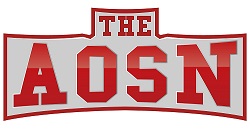A few years ago, the thought of David Price pitching for the Chicago Cubs would have thrilled all of Wrigleyville and Cub fans everywhere. Even today, Cub fans dream of having an ace of Price’s caliber leading their rotation, and under the right circumstances, team president Theo Epstein and general manager Jed Hoyer would certainly have to do all they could to make it happen.
Why bring up trading David Price to the last-place Cubs? FOX Sports’ Ken Rosenthal calls it the “right move for the Cubs.” The Tampa Bay Rays have made him available, and all contending teams will see if they have what the Rays want in return to make a deal. The Cubs, though, will not contend for at least two more years — when all of their top-rated prospects make it to the Majors to stay.
Today, trading for Price does not make as much sense as it appears to make at first glance. Undoubtedly, Price is a true ace. As of July 21, he is 10-7 for a struggling Rays team, but he has a 3.06 ERA and 1.04 WHIP. He also leads the Major Leagues in strikeouts with 173 in 155.2 innings. He is 6-3 with a 1.72 ERA in his last ten games.
In his career, Price is 81-46 with a 3.17 ERA and 1.14 WHIP since he came up with the Rays in 2008. He has postseason experience, including the 2008 World Series, although that has not worked out as well: 1-4, 5.06 in nine games.
Why, then, should the Cubs pass on Price? Although salary is not always the best reason to take or decline a player, in this case, it is. Price makes $14 million this year, and he is eligible for arbitration for 2015. Rosenthal believes that Price will command $20 million. Even though the Cubs could pay it, that is far too much because Price alone will not turn the Cubs into winners next year. They would need him for at least three more years, and when he becomes a free agent after 2015, Price at age 30 will still command a very hefty contract. Rosenthal says $180 million.
Epstein and Hoyer need to stick with their current plan. They worked hard to dump high salaries and bring in the best young prospects available; they should not trade the prospects away. In addition, Jake Arrieta and Travis Wood are talented enough to make the front end of the rotation strong. The Cubs could use that $20 million to bring in two, maybe three, good pitchers to solidify the rotation.
Yes, the Cubs will need veterans to give the team some experience and to help mentor the younger players. However, investing all their money in one pitcher, even David Price, could turn out detrimental. They would not cave into Jeff Samardzija‘s demands, partially for that reason. Cub fans have much patience. If they can exercise it for a few more years, they will have their reward.
PHOTO CREDIT: www.prosportsextra.com
